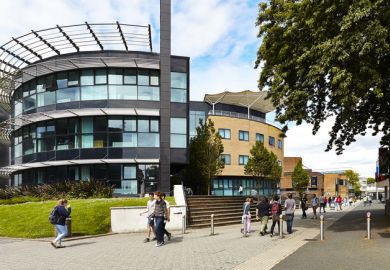A university has delayed the opening of its private medical school after a review by regulators.
The University of Central Lancashire will now offer the £35,000-a-year course from 2015 to give it more time to recruit senior staff and secure placements for students.
The General Medical Council raised concerns about the curriculum, student selection, provision of placements and a lack of senior staff after a quality assurance review in May.
The five-year course for self-funded international students had been due to start this month, but the university made the decision to delay in June. A spokesman for the university said: “The GMC visit…identified the short timescale available and coincided with our own internal progress review. We agreed that additional time was needed.”
The university said that it informed students immediately and gave them the option to delay entry for a year or receive a refund on deposits.
Uclan declined to comment on how many placements had been arranged for its initial 35-strong cohort, but added that it was “very confident” that they would all be in place for September 2015.
A report from the GMC, published on 29 August and based on the visit in May, said that the university was not yet meeting the required standard in several areas relating to student placements. It added that GP practices were not “fully prepared” for placements and that the university was working with a hospital trust that is under investigation over mortality rates.
The medical school at nearby University of Manchester has previously raised concerns over the ability of the local region to support additional student placements in primary care, according to the report.
Katie Petty-Saphon, chief executive of the Medical Schools Council, said that she had no knowledge of the specific situation, but added that Manchester has the largest medical school in the country. “With a medical school at Lancaster too, it would not be surprising that it might take time to identify additional clinical placements,” she said.
“The Department of Health is clear that organisations providing placements must be able to do so without impact on current students placed with them,” she added.
Mike Cawthorne, head of the medical school at the University of Buckingham, which is due to open a private medicine course in January, said that it was not easy to find placements. He added that it was able to fill a “hole” in Milton Keynes, as very few students from existing medical schools are sent on placements to the city’s hospital.
The GMC also said that the team at Uclan lacked experience in setting up medical programmes, with “key high-level vacancies” unfilled at the time of the visit. The report added that it had “particular concerns” about the arrangements for selecting students, curriculum coherence, and structure, assessment and quality management.
Writing in the GMC report, Uclan said it had now appointed an associate dean who was “instrumental” in developing the clinical medical programme at the University of St Andrews, as well as a head of work-based learning and five lecturing staff. A spokesman added that five agreements had now been signed with general practices for community placements in the first and second years of the course, with two more due to be signed this month.
Register to continue
Why register?
- Registration is free and only takes a moment
- Once registered, you can read 3 articles a month
- Sign up for our newsletter
Subscribe
Or subscribe for unlimited access to:
- Unlimited access to news, views, insights & reviews
- Digital editions
- Digital access to THE’s university and college rankings analysis
Already registered or a current subscriber?





